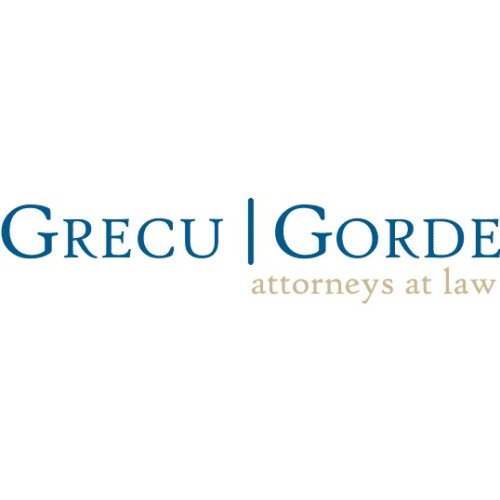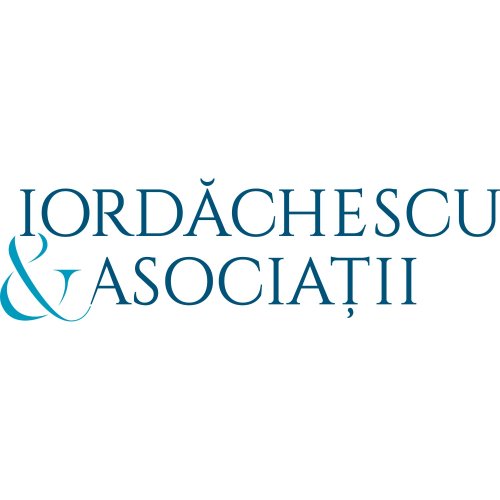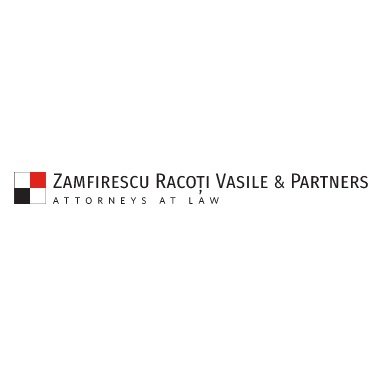Best Public-Private Partnerships (PPP) Lawyers in Romania
Share your needs with us, get contacted by law firms.
Free. Takes 2 min.
Or refine your search by selecting a city:
List of the best lawyers in Romania
About Public-Private Partnerships (PPP) Law in Romania
Public-Private Partnerships, often referred to as PPPs, are collaborative agreements between government authorities and private sector companies for the development, financing, and operation of public infrastructure or services. In Romania, PPPs have become an essential mechanism for implementing large-scale projects such as highways, hospitals, waste management systems, and public utility services. The legal framework in Romania aims to ensure transparency, efficiency, and risk sharing between public and private partners, enabling both sectors to leverage resources and expertise for the public good.
Why You May Need a Lawyer
Engaging in PPP projects can be complex, involving intricate legal, financial, and regulatory processes. You may need legal assistance in various situations, such as:
- Understanding eligibility requirements and participating in public tenders for PPP contracts
- Preparing or reviewing PPP agreements, ensuring the allocation of risks and responsibilities
- Navigating procedures related to permits, authorizations, and compliance with local regulations
- Negotiating with government entities or consortia partners
- Drafting contractual documents, lease agreements, or joint venture arrangements
- Managing disputes, claims, or litigations arising from PPP contracts
- Advising on project financing and the structuring of investments
- Ensuring the legality of amendments or extensions to existing PPP projects
- Protecting intellectual property, proprietary technologies, or trade secrets involved in project delivery
- Facilitating communication with local authorities and regulatory bodies
A specialized lawyer can help you avoid costly mistakes, ensure compliance, and optimize your position in any PPP process in Romania.
Local Laws Overview
Public-Private Partnerships in Romania are governed by specific laws and regulations, periodically updated to reflect European Union directives and best practices. The principal law is Law no. 233/2016 on public-private partnership, subsequently amended and supplemented by various government ordinances and methodological norms. The main legal aspects include:
- Definition of PPP Projects: Projects requiring significant investments in infrastructure or public services, delivered through cooperation between public and private entities
- Parties Involved: Contracting public authorities (such as ministries, regional councils, or city halls) and private investors, which can be Romanian or foreign companies
- Tender Procedures: Public awarding procedures are based on transparency, equal treatment, and efficient use of public funds; all PPP projects must be awarded through competitive procedures
- Contract Duration: PPP contracts in Romania can last from five up to forty-nine years, depending on the project complexity and investment recovery period
- Financial Models: Project financing may involve public budget contributions, revenues generated by the project, or other forms of financial involvement from both parties
- Risk Allocation: Clear allocation of contractual risks between the public and private partners, as foreseen in the PPP contract
- Supervision and Implementation: Dedicated authorities supervise the contract’s execution, compliance, and quality standards of services delivered
- Dispute Resolution: Disputes are commonly resolved through arbitration or Romanian courts, as specified in the contract
- State Aid and EU Funding: PPP projects may need to align with state aid rules and may benefit from European Union funds if compliant with EU regulations
It is crucial to seek legal advice as legislative changes and complex procedures can significantly impact all phases of a PPP project.
Frequently Asked Questions
What is a PPP in the context of Romanian law?
A PPP in Romania is a long-term partnership between a public authority and a private partner aimed at delivering public infrastructure or services, governed by Law 233/2016 and its amendments.
Who can participate as a private partner in a PPP project?
Private partners can be Romanian or foreign companies, consortia, or association of legal or natural persons with the necessary technical and financial capacity.
What types of projects are typically developed through PPPs in Romania?
Common PPP projects in Romania include highways, airports, waste management facilities, energy production units, hospitals, water treatment plants, and public transportation systems.
How are risks typically allocated in PPP contracts?
Risks are allocated based on which party can best manage them, including construction, operational, financial, market, and legal risks. The allocation is detailed in the PPP contract.
What is the typical duration of a PPP contract?
PPP contracts usually last from five to forty-nine years, depending on the scope, investment amount, and time required to recover the investment.
Are there any special authorities supervising PPP processes in Romania?
Yes, the National Commission for Strategy and Prognosis and local contracting authorities oversee the development, implementation, and supervision of PPP projects.
What is the process for awarding a PPP contract?
PPP contracts are awarded through open or competitive procedures, with stages such as project approval, public consultation, procurement, partner selection, and contract signing.
Can PPP projects benefit from European Union funds?
Yes, PPP projects are eligible for EU funding if they comply with both national and EU rules regarding public procurement, state aid, and project eligibility.
How are disputes over PPP contracts resolved?
Disputes are commonly resolved through arbitration or the competent Romanian courts, as established in the PPP agreement.
What are the main advantages of using a PPP structure in Romania?
PPP structures enable the delivery of essential public projects with private sector expertise, innovation, and funding, while sharing risks and optimizing efficiency compared to traditional procurement.
Additional Resources
If you need more information or official guidance on Public-Private Partnerships in Romania, consider reaching out to:
- The National Commission for Strategy and Prognosis - the main authority overseeing PPPs
- The Romanian Ministry of Public Finance - for information regarding PPP funding and procurement procedures
- The Romanian Competition Council - for guidance on state aid compliance
- The Romanian Chamber of Commerce and Industry - for contacts with potential private partners and PPP events
- Local consultancy firms and law offices specializing in PPP projects
Additionally, review official documents such as Law 233/2016 and governmental methodological norms for comprehensive legal provisions.
Next Steps
If you are considering involvement in a PPP project in Romania, or if you need legal advice related to public-private cooperation, follow these steps:
- Clarify your project or participation goals and gather all available documentation
- Consult a specialized lawyer with experience in Romanian PPP regulations and public procurement
- Review relevant laws, identify legal and operational risks, and assess compliance requirements
- Prepare your application or participation documents according to best legal practices
- Engage in negotiations and contractual processes under legal guidance
- Seek early advice if you encounter disputes, delays, or compliance challenges
An informed legal partner can help you ensure that your PPP project is structured securely, responds to regulatory requirements, and successfully achieves your objectives in Romania.
Lawzana helps you find the best lawyers and law firms in Romania through a curated and pre-screened list of qualified legal professionals. Our platform offers rankings and detailed profiles of attorneys and law firms, allowing you to compare based on practice areas, including Public-Private Partnerships (PPP), experience, and client feedback.
Each profile includes a description of the firm's areas of practice, client reviews, team members and partners, year of establishment, spoken languages, office locations, contact information, social media presence, and any published articles or resources. Most firms on our platform speak English and are experienced in both local and international legal matters.
Get a quote from top-rated law firms in Romania — quickly, securely, and without unnecessary hassle.
Disclaimer:
The information provided on this page is for general informational purposes only and does not constitute legal advice. While we strive to ensure the accuracy and relevance of the content, legal information may change over time, and interpretations of the law can vary. You should always consult with a qualified legal professional for advice specific to your situation.
We disclaim all liability for actions taken or not taken based on the content of this page. If you believe any information is incorrect or outdated, please contact us, and we will review and update it where appropriate.
Browse public-private partnerships (ppp) law firms by city in Romania
Refine your search by selecting a city.

















